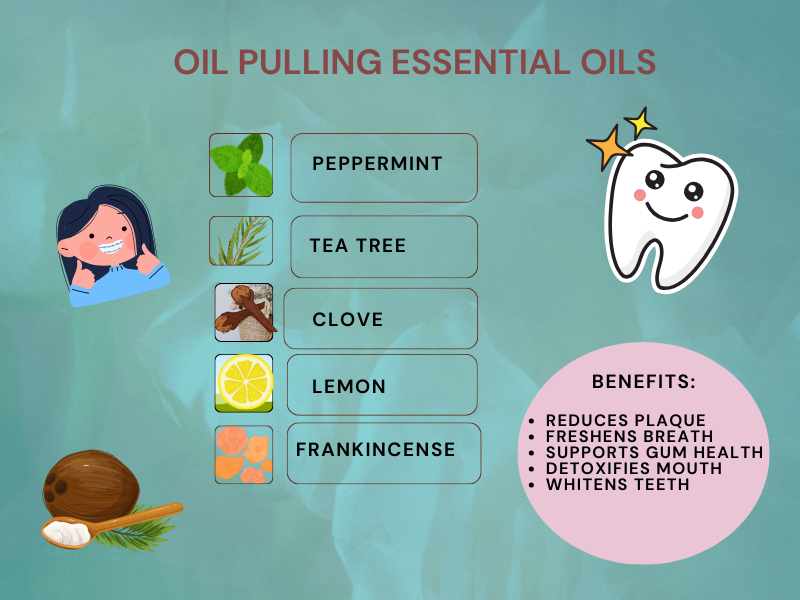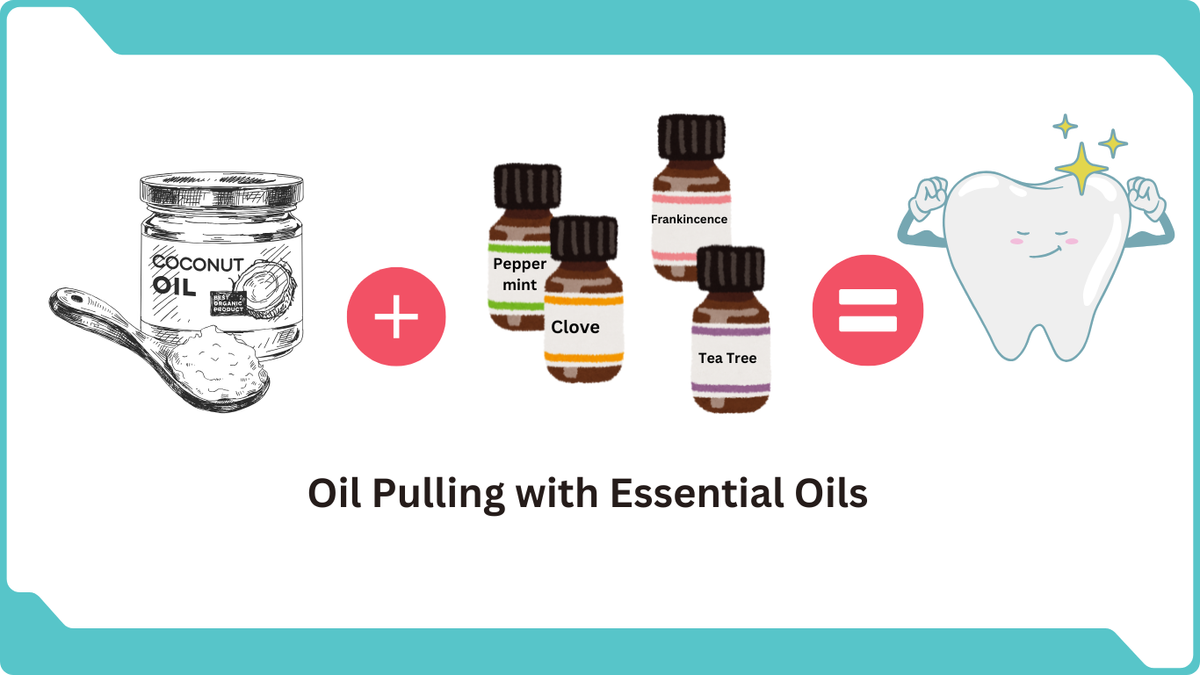Disclaimer, Privacy Policy, Terms of Service
Oil pulling is an ancient Ayurvedic practice that involves swishing oil in your mouth to detoxify, cleanse, and improve oral health. This simple yet effective method has been gaining popularity in modern wellness routines, especially when combined with essential oils for an added boost. In this article, we’ll explore how oil pulling works, the benefits, and the essential oils that can make your routine even more effective.
What is Oil Pulling?
Oil pulling involves swishing a tablespoon of oil (typically coconut, sesame, or sunflower oil) in your mouth for 10-20 minutes. The process helps to "pull" out toxins and harmful bacteria from your mouth, leading to fresher breath, whiter teeth, and overall improved oral hygiene. When combined with essential oils, oil pulling not only enhances oral care but can also provide added health benefits.
Benefits of Oil Pulling
Oil pulling offers a variety of oral and general health benefits, including:
- Detoxification: Removes toxins and harmful bacteria from the mouth.
- Improved Gum Health: Reduces inflammation and helps prevent gum disease.
- Whiter Teeth: Regular oil pulling can naturally whiten teeth without harsh chemicals.
- Fresher Breath: Eliminates bad breath by targeting the bacteria that cause it.
- Strengthened Immune System: By removing toxins, oil pulling can reduce the body’s overall toxic load.
Essential Oils to Boost Your Oil Pulling Routine
While plain oils are effective on their own, adding essential oils can enhance the benefits of oil pulling. Here are a few oils that work particularly well:
- Peppermint Essential Oil
- Properties: Cooling, antimicrobial, and freshens breath.
- Benefits: Peppermint oil fights bacteria that cause bad breath and creates a refreshing sensation while oil pulling.
- Tea Tree Essential Oil
- Properties: Antibacterial, antifungal, and anti-inflammatory.
- Benefits: Tea tree oil helps fight gum inflammation, reduces plaque buildup, and combats harmful oral bacteria.
- Clove Essential Oil
- Properties: Antimicrobial, analgesic, and anti-inflammatory.
- Benefits: Clove oil is well-known for soothing toothaches and gum issues while providing protection against infections.
- Lemon Essential Oil
- Properties: Cleansing, antibacterial, and refreshing.
- Benefits: Lemon oil helps remove stains, brighten teeth, and adds a zesty freshness to your oil pulling routine.
- Frankincense Essential Oil
- Properties: Anti-inflammatory, healing, and immune-boosting.
- Benefits: Frankincense oil can help reduce gum inflammation and support overall oral health by promoting healing in the mouth.

How to Do Oil Pulling with Essential Oils
- Choose your oil: Coconut oil is the most popular due to its pleasant taste and antibacterial properties, but you can also use sesame or olive oil.
- Add essential oils: Combine 1 tablespoon of your base oil with 1-2 drops of your chosen essential oil(s). Don’t exceed 1-2 drops, as essential oils are highly concentrated.
- Swish for 10-20 minutes: Swish the oil mixture in your mouth, pulling it through your teeth and across your gums. Try to reach every part of your mouth.
- Spit it out: After 10-20 minutes, spit the oil into a trash bin (not the sink, as the oil may clog your drains). Avoid swallowing the oil, as it contains the toxins you've pulled from your mouth.
- Rinse: Rinse your mouth with warm water and brush your teeth as normal.
How Long Should You Oil Pull?
It’s recommended to oil pull for 10-20 minutes, once daily, preferably in the morning on an empty stomach. If 20 minutes feels too long, you can start with 5-10 minutes and gradually increase the time as you get used to the practice.
Before incorporating essential oils into your oral hygiene routine, it's crucial to consult with a healthcare professional or a dentist. While many essential oils have antimicrobial properties, some can be irritating or even harmful when used undiluted.
⚠️ Essential Oil Safety Tips:
Always dilute essential oils in a carrier oil like coconut oil or olive oil before using them in your mouth.
Always dilute essential oils with a carrier oil before applying them to the skin.
Avoid applying essential oils near your eyes, ears, or sensitive areas.
Perform a patch test on a small area of skin to check for sensitivity.
If you're pregnant, nursing, or have a medical condition, consult a healthcare professional before use.
Keep essential oils out of reach of children and pets.
